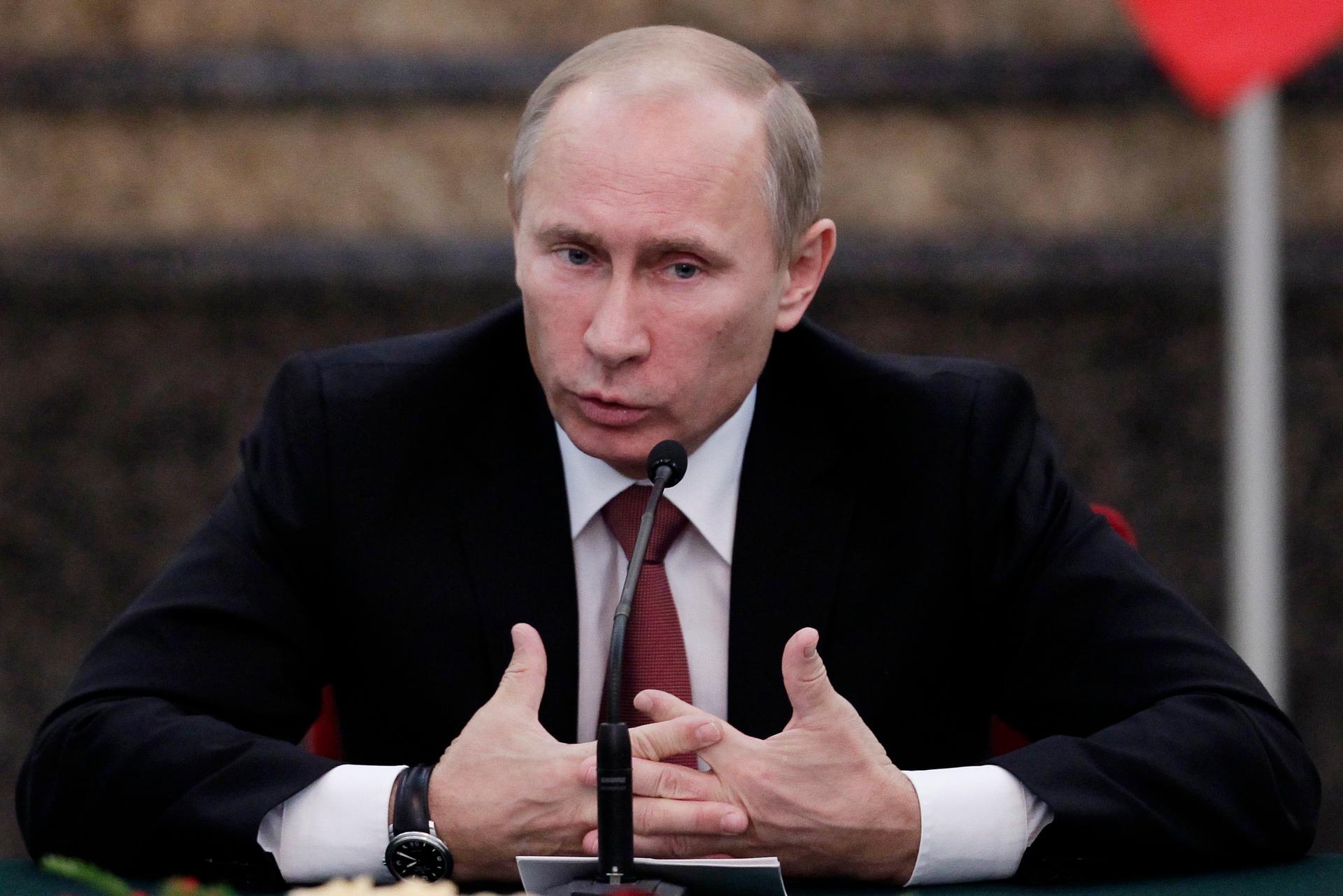Russia completes a long, strange trip to the World Trade Organization
Putin’s ambivalence held up entry.
MOSCOW, Russia — The world’s largest economy outside the World Trade Organization finally joined on Wednesday, finishing a 19-year quest to end its exclusion from the body under which most global commerce takes place.
“This is an excellent stimulus for developing the economy and competition,” former Finance Minister Alexei Kudrin wrote on his Twitter account.
WTO membership should make Russia’s $1.9 trillion economy more accessible to foreign companies by lowering import and export duties and helping open banking, telecoms and other opaque industries.
However, some believe it’s mostly a matter of prestige that will do little for Russia’s economy — the world’s ninth-largest — if the government fails to combat the country’s choking corruption, trim bureaucracy and institute the rule of law.
More from GlobalPost: Grexit looms as euro crisis returns
Natalya Volchkova of the New Economic School says WTO accession is important for Russia's future development. Joining is “a very important anchor in trade policy that will make the whole economy more predictable and will push down risks for investors,” she said.
President Vladimir Putin, who signed Russia's accession agreement in July, said it would “provide the possibility to defend our interests in a civil and legal manner.”
He didn’t always appear convinced: His earlier ambivalence partly explains why Russia took so long to join.
Many believed Moscow would sign up soon after China acceded in 2001. But Russian interest waned as surging energy prices transformed the previously crisis-ridden economy and emboldened officials who believed Russia should follow its own economic path.
Putin sometimes poured cold water on membership talks during spats with western countries. He stunned diplomats in 2009 by saying Russia would join only as part of a customs union with Kazakhstan and Belarus.
But the global financial crisis, which caused a slump in oil prices and prompted calls for economic modernization, stimulated new interest in 2009. It coincided with President Barack Obama’s “reset” in Russian relations.
Washington saw WTO membership as a carrot to improve ties, and US negotiators applied themselves toward unlocking Russia's entry.
American companies may see that as ironic. Congress has yet to establish “permanent normal trade relations” with Russia, a decision tied to Cold War sanctions still in place over the emigration of Soviet Jews. US firms say that puts them at a disadvantage compared to foreign rivals.
But Russia is set to benefit. The World Bank estimates the country’s WTO entry will add $49 billion dollars a year, or three percent, to its GDP once all tariff barriers are lowered.
That will be done gradually. Only a third of cuts come into force on Wednesday. The pork industry will have eight years to comply, auto and helicopter manufacturers another seven years.
Cheaper foreign products and greater demand for skilled workers from foreign banks and telecoms companies likely to expand their operations will benefit almost all Russian households, according to the World Bank.
Export industries, chiefly metals and chemicals, are also expected to benefit. However, the food, automobile and other sectors long shielded from competition may struggle.
More from GlobalPost: Russia wages a battle against the opposition
But analysts say there’s more at stake for officials than cars and sausages. Sergei Prikhodko of the Gaidar Institute for Economic Policy says WTO membership is about Russia taking its rightful place in the world.
“Countries that aren’t WTO members — Kazakhstan, Belarus, North Korea — either don’t want to join or are very small,” he said. “It’s not good for our country to be in that company.”
Putin told parliament in April that WTO membership is a stepping-stone to another coveted prize: joining the rich-country think-tank the Organization for Economic Cooperation and Development. That, he said, would “stamp a global mark of quality on our economy.”
But some criticize the prestige projects for bringing no other tangible benefits.
Mikhail Delyagin of the Institute for the Problems of Globalization said joining WTO would only damage the domestic industry. “There’s no economic reason for Russia to join because Russia exports raw materials,” he said. Oil and gas — the country’s main exports — are largely exempt from WTO rules.
Prikhodko says there would never be an ideal time for Russia to join. “Of course it’s not a magic wand,” he said, but added membership could speed reforms that would modernize the economy and tackle corruption.
Volchkova of the New Economic School agrees, saying Russia requires “better infrastructure, an educated labor force, and needs to fight corruption and continue a very strict and stable monetary policy.”
“It’s not about WTO accession,” she says. “It’s about domestic policy.”
Every day, reporters and producers at The World are hard at work bringing you human-centered news from across the globe. But we can’t do it without you. We need your support to ensure we can continue this work for another year.
Make a gift today, and you’ll help us unlock a matching gift of $67,000!
